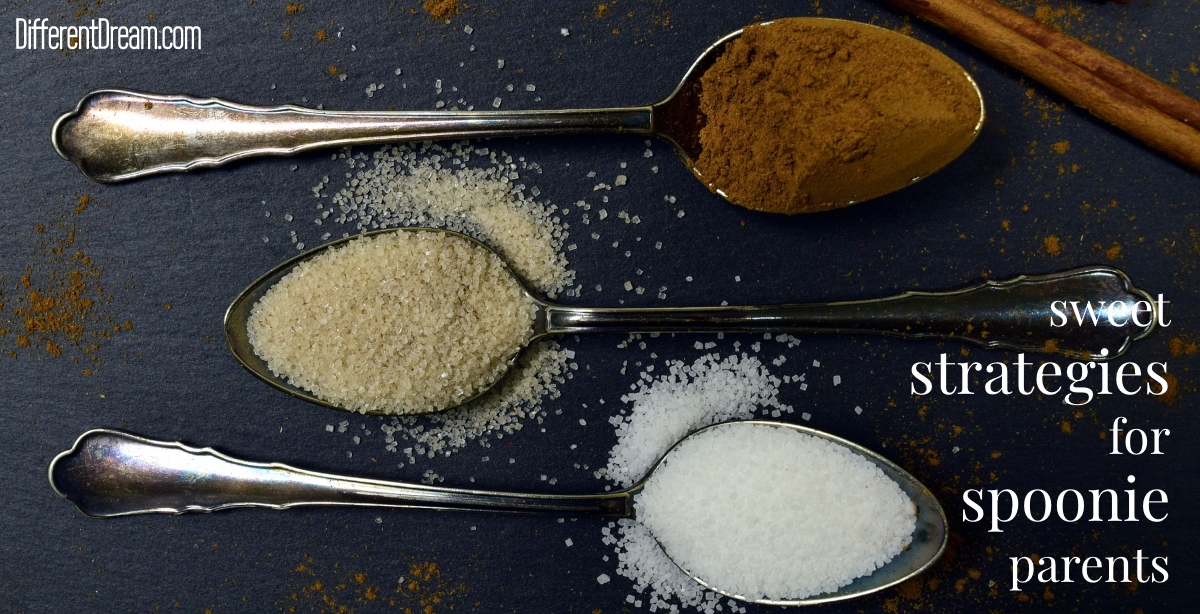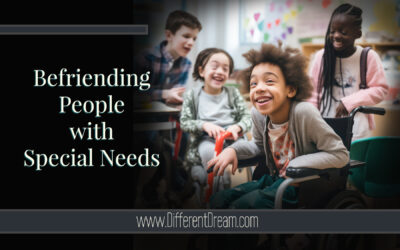The Reality of Spoonie Parenting

The reality of spoonie parenting became part of guest blogger Jessica Temple’s world in November of 2020. In this post about the reality of spoonie parenting (ie: parenting kids with special needs while living with a chronic illness), she shares what she’s learned about parenting since her diagnosis.
When I was growing up, friends said that I was the sickest healthy person they ever met. I always felt crummy, was always getting sick, and spent most of my time at doctor offices. My symptoms worsened in the past year, and I rapidly lost mobility. In November 2020, I was diagnosed with hypermobile Ehlers Danlos Syndrome (hEDS), everything clicked.
The diagnosis presented a new issue: how to parent two children with special needs, one of whom required a fair amount of assistance and was very aggressive, while increasingly disabled. As my symptoms progressed, I became less mobile and less stable on my feet. It was distressing to not be the parent I had always hoped to be; one who could run around with her children, get on the floor and back up during playtime.
Since diagnosis, I’ve discovered what to do and what not to do as the parent of kids with special needs. I’d like to share some of what I’ve learned with you about the reality of spoonie parenting.
Inform The Children
I have been telling my children what they need to know, when they need to know it, and in a way that they can understand without scaring them. When I needed surgery for ear infections, I explained that mommy’s ears were sick and needed a tiny tube and balloon in them to feel better. When I started using a rollator, I said that my knees get wobbly like slime or putty, and feel better with the rollator. They are both obsessed with the rollator. I told them that when my neck gets wobbly hurts, a hard neck collar keeps it safe and healthy. For older children, it may be appropriate to further explain the condition, its symptoms, and what this means for the parent in terms of outcome and limitations. Always keep in mind the child’s cognitive abilities, present level of mental health, and individual needs during every conversation.
Find Help
After my diagnosis, I realized that we needed more help than the ABA therapist who came some evenings to assist my son who has autism. However, it wasn’t enough. My husband , who has the same diagnosis, and I weren’t as able to do housework or lift children. Our oldest (5) is very aggressive and can cause us severe harm. So we reached out to babysitters do the intense physical play, bathing, lifting, and to create a human barricade when our sone becomes aggressive. We asked for additional ABA assistance and secured the services of a psychotherapist to assist us with Benji’s behaviors. We asked family for more assistance, especially during outings. Growing our village has been wonderful. I have more time for to care for my body and attend medical appointments and physical therapy.
When You Don’t Feel Well
I recently talked to another spoonie mom about how she spends time with her children when shes sick, in pain, or has no energy. She said she instituted tablet time and slug time when her kids were young.. For tablet time, she would lay in bed with her son or daughter and they would play games, watch fun shows, draw silly pictures on art apps, or take pictures. Her son took the tablet around the house, narrated to her what he was doing (so she could keep tabs on him), and took pictures of things he found interesting. He returned to her and showed and told her the neat things he found.
Slug time was done similarly, but without screens. She read to the children, or had them read to her. They told lofty and fantastic stories and played in-room hide and seek, I-Spy, Simon Says, and other games. She could lay in bed comfortably and gain energy while having quality time with her children. I’m integrating these ideas with my kiddos, and we all love it!
Acknowledge Your Limits
At first, I really struggled with the knowledge of limits with regard to my energy level, mobility, and ability to engage with my children. I pushed through anyway which led to flares, extreme fatigue, and a decline in mobility. As I observed this, I realized the need to acknowledge my limits and abide by the information my body provided. When I lie down more, take more breaks, ask for help, and use mobility devices, I feel better and experience fewer EDS flares. I’m able to be more present with the kids and can spend more quality time with them.
Make The Most of What You Have
As the reality of spoonie parenting set in, I started appreciating time with the children more. Rather than resenting them or myself, I used mindfulness strategies to stay in the moment. I try to make each moment one of quality. We do more slug time or interactive tablet time. I engage more personally with the children, focus on the sweet or funny moments, and sneak in some cuddling to get some oxytocin, the natural pain reliever. I resent my limitations less when I spend and enjoy time with my children.
Build New Opportunities
Rather than being limited by my disability, I built and created new opportunities. This began with a burning desire to advocate for adults with invisible chronic illnesses. It led to the creation of a new podcast, The Spoonie Struggle. Through it, I have met many other people. Many of them parents, lots with children with special needs, who are now new friends. These friends have fantastic suggestions about Spoonie parenting, resources, support groups, and social media groups. Exploring these resources and options led to additional opportunities. I became more comfortable with myself and more willing to use braces and mobility aids. Those opened new travel and entertainment opportunities for building memories with the kids.
Cope With Flares
Flares happen, about one a month for me. I track them in order to prevent them or ramp up the self-care. During flares, I make more use of babysitters and family helpers and implement more of the strategies mentioned earlier in this post. They may take time away from the time I have with our children, but it shortens the length and impact of the flares and brings us back together more quickly. I let them know that mommy is not feeling as well and has to change the way she plays with them. I talk up our helpers and make everything sound novel and fun, which gets them on board.
The reality of spoonie parenting has been a new challenge, one I didn’t think I would be up for. However, it has become more manageable thanks to the strategies I’ve learned. I hope they help you learn more about your body and family, so you discover ways to adapt and thrive!
Do you like what you see at DifferentDream.com? You can receive more great content by subscribing to the monthly Different Dream newsletter and signing up for the daily RSS feed delivered to your email inbox. You can sign up for the first in the pop up box and the second at the bottom of this page.

By Jessica Temple
Jessica Temple, PsyD, ABPP-CN, is a board-certified adult clinical neuropsychologist. She has two children who have special needs. She and her husband, Lewis, host a podcast called Thriving in The Midst of Chaos, where they talk about all aspects of special needs including getting a diagnosis and treatment, self-care, relationships, transitioning to adulthood, school, and finances. They created Thriving in The Midst of Chaos and The Spoonie Struggle to offer support to others in the special needs world as well as to provide an easy way to find the most useful resources. They aim to share helpful resources with others, advocate for improvement, change in the special needs world, and offer a different perspective on parenting. To find out more about how Jessica’s work can help you, contact her at fubarpod@gmail.com or @midstofchaospod on all social media platforms.
Subscribe for Updates from Jolene
Related Posts
How Do I Discern if Medication Is Best for my Child’s Behavioral Needs?
Heather Braucher explains her answer to the question, “How do I discern if medication is best for my child’s behavioral needs?”
How Do I Teach my Kids to Interact with People Who Have Disabilities?
Jolene gives practical pointers for people who ask, “How do I teach my kids to interact with people who have disabilities?”
Choosing Acceptance and Advocacy as Parents of Kids with Disabilities
Choosing acceptance and advocacy as parents of kids with disabilities can be hard, but it’s necessary to our kids and to ourselves.






0 Comments